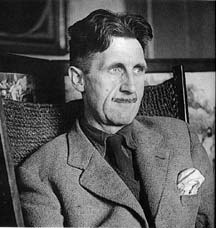By Any Other Name
There is a sense of serendipity that two articles fell into my hands on the same day – the first, a news article about a masturbation marathon in San Francisco and the other appeared in the conservative cultural journal "The New Criterion" concerning a conference of literary and social theorist. It would appear on the surface there is little to link what appear to be two random news pieces, but looks can be deceiving.
More than one hundred men and women took part in what was billed as the city of San Francisco’s second annual “Masturbate-a-thon.” Organizers said they gave individuals “the opportunity to overcome their inhibitions” in a safe public environment and raise money for charity. The proceeds from this bout of exhibitionism are donated to the local Center for Sex and Culture, a non-profit organization that provides sex education. It is exactly this sort of thing that leads many people in my part of the country to say that the only good thing to come (no pun intended) out of California is an empty bus.
“This is an effort to counter centuries of censure, to make masturbation more fun and to make it more accessible,” says Thomas E. Laqueur, a professor of history at the University of California at Berkeley and author of the recent “Solitary Sex: A Cultural History of Masturbation. Even though I live in the sexually inhibited Midwest, I was surprised to find there was a problem with accessibility.
Onanism of another variety held its own conference a few weeks earlier at the University of Chicago. The editors of Critical Inquiry, academe’s prestigious theory journal, convened a “loya jirga” of scholarly elite. The New York Times article the New Criterion’s is based states:
“These are uncertain times for literary scholars. The era of big theory is over. The grand paradigms that swept through humanities departments in the 20th century – psychoanalysis, structuralism, Marxism, deconstruction, post-colonialism – have lost favor or been abandoned. Money is tight. And the leftist politics with which literary theorists have traditionally been associated have taken a beating.”
I have my own views about the literary theories of the past quarter century which I summed up in a parody of haikus written in Scots:
Cam Ye O’er Frae France?
(in admiration of the French Postmodernists)
Jock Lackin’ an’ wee
kirkie Derridoo, ay cannae ken
‘a word o’ wha’ they do!
These days, English departments everywhere have deconstructed themselves to the level of nonsense. Literary theory has become the new literature, and no scholar worthy of his French influences believes in the objective reality of any text. The traditional canon no longer exists, nor do traditional standards. Everything is suitable for study because no one is privileged to judge one work better than the other. Good and bad are regarded as relative terms, making it difficult for anyone to protest when “Long Day’s Journey Into Night” is bumped from the curriculum by the “Vagina Monologues.”
Leftist thinkers of the new symbolic type would appear to believe that the way to do leftist politics is use words in a subversive way, in academic publications of lofty obscurity and disdainful abstractions. These symbolic gestures, it is believed are themselves are a form of political resistance; and so one need not engage with messy things such as legislatures, movements, and unions in order to act daringly. The new (or should I say, newer) Leftism, instructs its members that there is little room for large-scale social change, and maybe no room at all. We are all, more or less, prisoners of the structures of power that have defined our identity as oppressed; we can never change those structures in a large scale way and we can never escape from them.
All that we can hope to do is find spaces within the structure of in which to parody them, to poke fun at them, to transgress them in speech. And so symbolic verbal politics, in addition to being offered as a type of real politics, is held to be the only politics this is really possible.
These developments owe much to the recent prominence of French postmodernist thought. Many young leftists, whatever their concrete affiliations with this or that French Thinker, have been influenced by the extremely French idea that the intellectual does politics by speaking in a seditious manner, and this is a significant type of political action. Many have also derived from the writings of Michel Foucault, rightly or wrongly, the fatalistic idea that we are all prisoners in an all-enveloping structure of power, and that real-life reform movements usually end up serving power in new and insidious ways. Such leftists therefore find comfort in the idea that the subversive use of words is still available to left-leaning intellectuals. Deprived of the hope of larger or more lasting changes, we can still perform our resistance by the reworking of verbal categories, and thus, of the selves who are constituted by them.
This implied audience is imagined as remarkably docile. Subservient to the oracular voice of Gauloise-puffing frogs and dazzled by its patina of high-concept abstractness, the imagined reader poses few questions, requests no arguments and no clear definition of terms.
Increasingly, the academic and cultural trend is toward the pessimistic flirtatiousness represented by Messrs Foucault, Derrida, Lacan and Co. Postmodern leftism is in many ways so much easier than the old leftism. It tells scores of talented young people that they need not work on changing the law, or feeding the hungry, or assailing power through theories harnessed to material politics. They can do politics in the safety of their campuses, remaining on the symbolic level, making subversive gestures at power through speech and gesture. This, the theory says, is pretty much all that is available to us anyway, by the way of political action, and isn’t it exciting and sexy?





0 Comments:
Post a Comment
<< Home